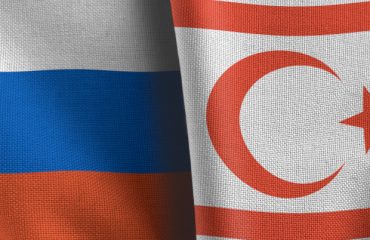
Turkish President Tayyip Erdoğan’s “Kanal Istanbul” project to build an artificial artery connecting the Black Sea to the Marmara Sea, parallel to the Bosporus, would not change the Montreux Convention establishing the legal status of the Black Sea, Aleksei Erkhov, the Russian Ambassador to Ankara, said on December 26. Answering questions of YetkinReport, Erkhov said that as long as the Kanal project does not change the Montreux Convention, Moscow would consider it a Turkish matter. In answer to the Turkish opposition’s criticisms, Erdoğan had targeted the 1936 Montreux Convention, one of the fundamental agreements of the Turkish Republic, saying that it had certain drawbacks, including providing free passage to commercial ships. Former President Abdullah Gül had revealed recently that when the U.S. requested to pass bigger warships during the Russia-Georgia crisis in 2008, Ankara had barred the way by applying Montreux clauses.
About the free passage rights provided by the Montreux Convention, Russian Ambassador Erkhov said that oil exporters could compare the queue costs of the ships; such a channel would not change the traffic situation much, even if it could relax the traffic through the Bosporus. The traffic through the Dardanelles strait, on the other hand, would remain unchanged. Twice during the interview which took place at a workshop titled “Asia Once Again” by the Turkish Foreign Ministry’s Strategic Research Centre (SAM) in Ankara, Erkov mentioned that he and Moscow tended to consider Kanal Istanbul as a “very long-term” project “for the future”. I took the liberty to interpret those diplomatic words as such: Moscow doesn’t think Erdoğan’s dream project would materialize anytime soon.
Here are Erkhov’s answers to YetkinReport’s questions.
YR: Is there any change in Russia’s policy regarding the Straits regime since 2011, when President Tayyip Erdoğan first mentioned building the Kanal Istanbul, parallel to the Bosporus?
AE: No, as far as I know.
Not only the Straits, the Black Sea too…
Among justifications for the project, Erdoğan also mentioned the Montreux Convention, which you are a part of. What is Russia’s position regarding the Montreux and the Kanal Istanbul project?
It’s an important matter for Turkey. I see it as a very long-term project, I mean really for the future. But the Montreux Convention has established a legal regime for the Black Sea. This legal regime not only establishes the passage through the Bosporus and the Dardanelles straits but also regulates the total tonnage of the ships of the coastal and non-coastal states. The presence of a new artery does not change the regime. The Montreux Convention sets certain limits to be obeyed during the passage in and out of the Black Sea; a new artery does not change those limits.
Are you making this point about the reported U.S. requests for more free passage to the Black Sea? What would you say about that?
(Smiling) Please ask that question to Mr. David Satterfield [The U.S. Ambassador to Ankara].
Will Russian vessels pay the fee?
In 2011 your predecessor Vladimir Ivanovsky had said that Russian ships would stick with the free passage from the Bosporus instead of paying for it. How would you consider it?
As for the commercial aspects of the Project, it should be considered from an economic efficiency angle. If I’m an oil exporter and if I’m going to get through the Bosporus, I have to consider my expenses. If I have to use a new channel, if any, I would ask how much it’s going to cost me.
Do you mean the Kanal cost versus the free passage rights?
Free does not mean regular passage all the time. There are rules implemented by Turkey like in all other sea arteries. Those are for security and, for example, we apply rules while passing in and out of the Azov Sea from or to the Black Sea. From time to time the ships form a queue; they wait in line to pass.
As long as it won’t change Montreux
Does that mean that the exporter could compare the time its ship waits with the passage cost from the Kanal that is set to be built?
That may change the situation for the Bosporus, but the existence of a new channel from the Black Sea to Marmara will not change the traffic in the Dardanelles strait; that does not change the situation much.
Do you think there is sufficient economic potential around the Black Sea to support the high costs, 75 billion lira (12.5 billion USD) according to the government, to build the Kanal Istanbul?
I’m not aware of any official figures. I haven’t read the feasibility study. As I’ve told you, we see this project as a very long-range project, a future project. And as soon as it keeps the situation according to Montreux unchanged, it’s a Turkish matter.
A fierce debate in Turkey
Since the Russian ambassador considered Erdoğan’s Kanal Istanbul project as a Turkish matter as long as it did not change the Montreux convention about the status of the Black Sea, the interview could not proceed into the fierce debate stirring the Turkish public opinion about ecological and urbanization problems that the artificial channel would likely cause. The 43 km-long, 150 to 400 meters-wide and 21 meters-deep channel is to divide the European quarters of Istanbul into two and create an island out of one of the most earthquake-vulnerable locations of the earth. In addition to that, Ekrem İmamoğlu, the mayor of Istanbul from the opposition Republican People’s Party (CHP) list revealed recently that three of the biggest investors who speculated land from the planned route of the channel were big Arab real state companies. One of the speculators is reportedly the mother of the Emir of Qatar, Sheikha Moza bint Nasr, who had bought 44 deciares of land in what used to be practically the middle of nowhere that is now on the planned construction route.
Erdoğan and opposition parties accuse each other of being in treason to the country because of the project.

